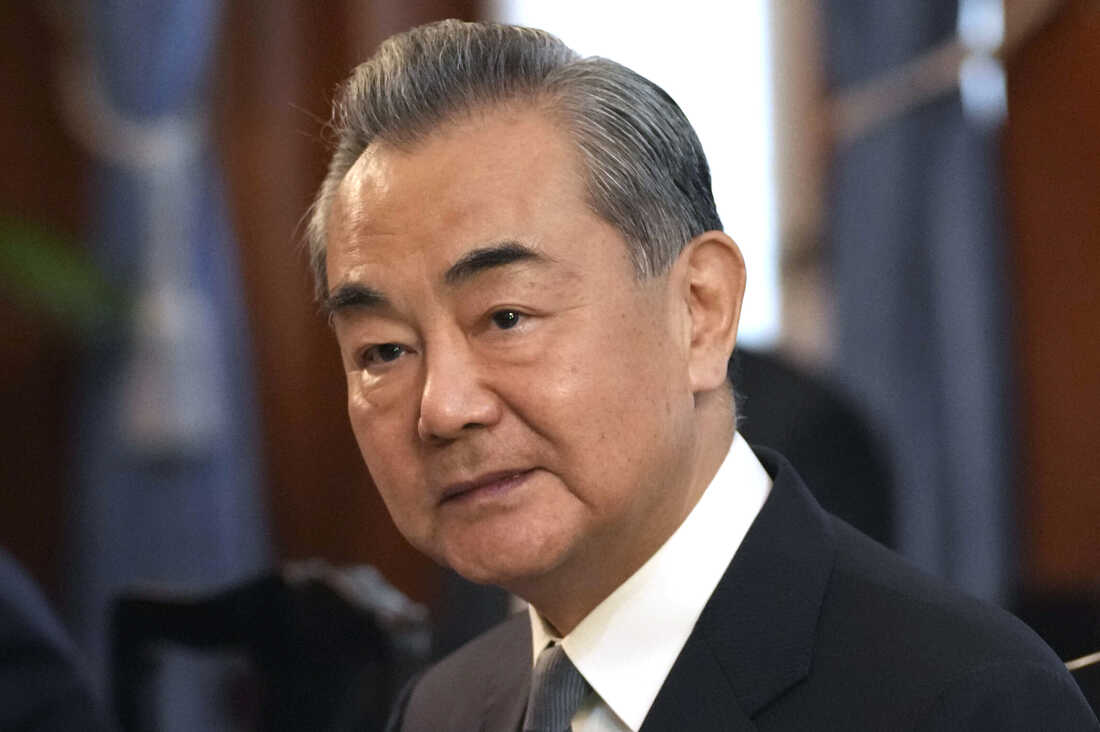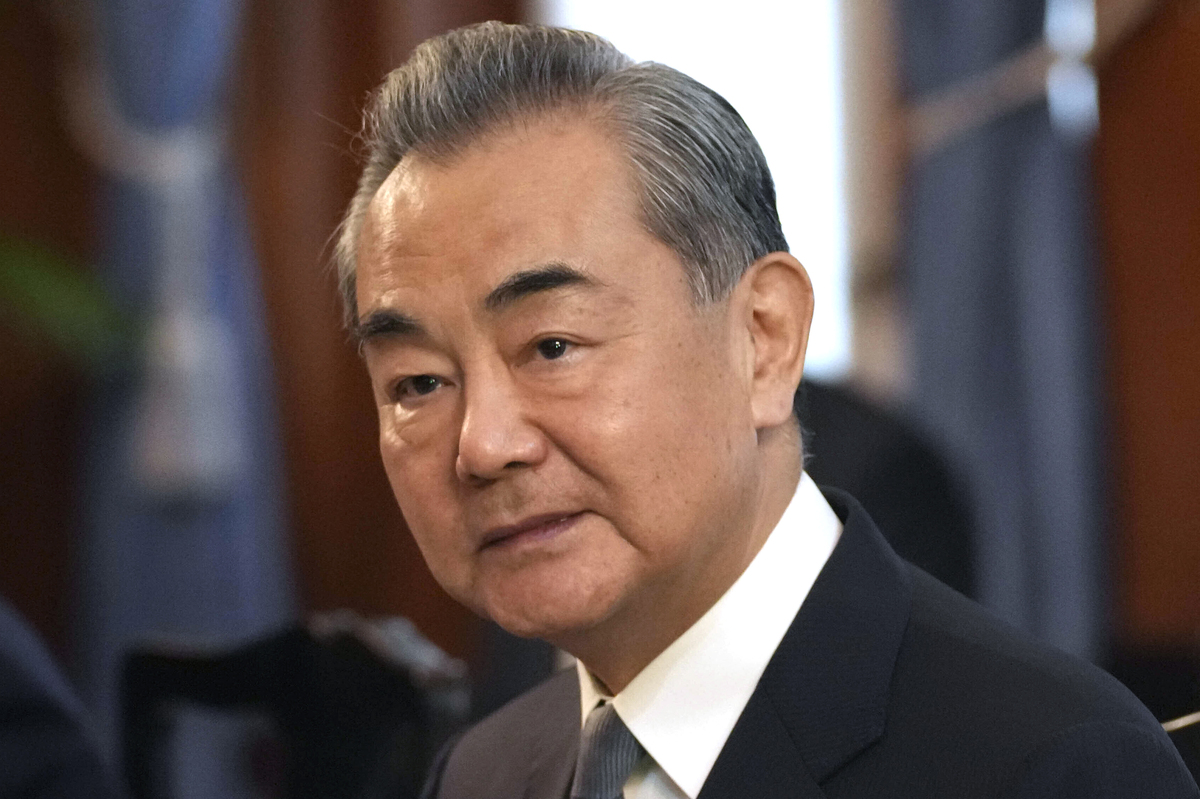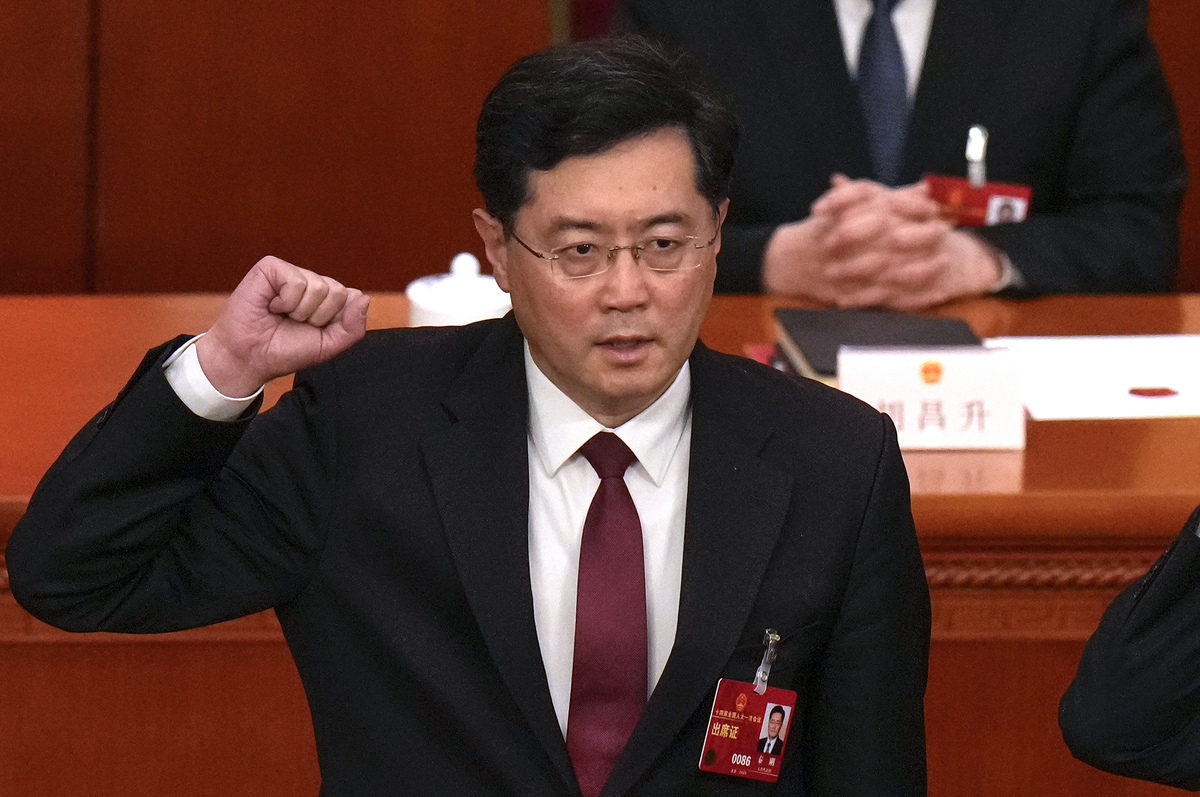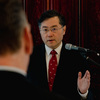
[ad_1]

The Chinese Communist Party’s international coverage chief, Wang Yi, has been reappointed because the nation’s international minister.
Tatan Syuflana/AP
conceal caption
toggle caption
Tatan Syuflana/AP

The Chinese Communist Party’s international coverage chief, Wang Yi, has been reappointed because the nation’s international minister.
Tatan Syuflana/AP
China is eradicating its international minister, Qin Gang, and reappointing his predecessor, veteran diplomat Wang Yi, to fill the place.
The transfer, reported Tuesday by Chinese state media, comes after Qin disappeared from public view after assembly in Beijing with the Russian deputy international minister on June 25.
Chinese authorities have given no substantial clarification for the whereabouts of Qin, who was named foreign minister in December after lower than two years as ambassador to the United States. The ignorance has led international dignitaries to postpone visits to Beijing and fueled unsubstantiated rumors concerning the senior official’s private life {and professional} file.
The announcement of his substitute, made at a hastily called meeting of the leaders of China’s rubber-stamp parliament, mentioned for now Qin will preserve his title of state councilor, akin to an American Cabinet place, indicating he isn’t in severe political bother. But Qin has not but reappeared.

Qin Gang takes the oath as Chinese international minister throughout a session of China’s National People’s Congress on the Great Hall of the People in Beijing on March 12. China eliminated Qin from the submit and changed him together with his predecessor, Wang Yi, in a transfer that has already fueled rumors over the non-public lives and political rivalries of China’s Communist Party elite.
Andy Wong/AP
conceal caption
toggle caption
Andy Wong/AP

Qin Gang takes the oath as Chinese international minister throughout a session of China’s National People’s Congress on the Great Hall of the People in Beijing on March 12. China eliminated Qin from the submit and changed him together with his predecessor, Wang Yi, in a transfer that has already fueled rumors over the non-public lives and political rivalries of China’s Communist Party elite.
Andy Wong/AP
Qin’s predecessor and substitute, 69-year-old Wang, is a seasoned diplomat who state leaders, together with many U.S. officers, know properly. He held the international minister submit for practically a decade beginning in 2013, earlier than being promoted to hitch the Politburo, an elite Communist Party ruling physique, in addition to heading up the social gathering’s worldwide affairs division.
But Qin’s continued absence has unnerved China’s worldwide interlocutors, and the sudden personnel swap is an indication of how elite politics continues to function behind excessive opaqueness at the same time as Beijing’s worldwide clout expands, analysts say.
Qin, 57, started his profession in 1988, when he was first assigned to work for the Beijing bureau of the United Press International, a U.S. information company, on a brief stint. At the time, international information shops weren’t allowed to immediately make use of Chinese nationals and have been assigned native workers by the authorities.
He then made a dizzying climb up China’s diplomatic ranks, proving himself to be a deft operator who might strike a steadiness with the international ministry’s rising legion of what Chinese and Western analysts call “wolf warrior diplomacy” whereas nonetheless sustaining a suave, cosmopolitan contact.
In two earlier assignments as one of many Foreign Ministry’s spokespeople, Qin became a household name by delivering scathing one-liners and takedowns of the international press, making a extra forthright communication type from the rostrum that has since been adopted by successive spokespeople.
As vice international minister beginning in 2018, Qin was the motive force behind the Chinese response to coordinated British, American and European Union sanctions on 4 senior Chinese officers over human rights abuses within the area of Xinjiang.
Under Qin’s urging, Beijing ultimately determined to impose counter-sanctions barring greater than two dozen European establishments and people that far exceeded the scope of Western sanctions, in keeping with two Western diplomats accustomed to the matter. They requested anonymity as a result of they weren’t approved to speak publicly.
Qin is extensively perceived as near China’s chief, Xi Jinping, after the 2 had frequent interactions when Qin was chief of protocol between 2014 and 2018. Qin developed a popularity for an exacting consideration to element, equivalent to reportedly phoning up museum administrators at 2 within the morning throughout considered one of Xi’s visits to Belarus to run by logistics once more.
His appointment in 2021 as China’s ambassador to the U.S. — as financial and political tensions mounted between the 2 international locations — was an additional signal of the belief Xi had in Qin, analysts say.
Emily Feng reported from Taipei, Taiwan. Aowen Cao contributed analysis from Beijing.
[adinserter block=”4″]
[ad_2]
Source link


